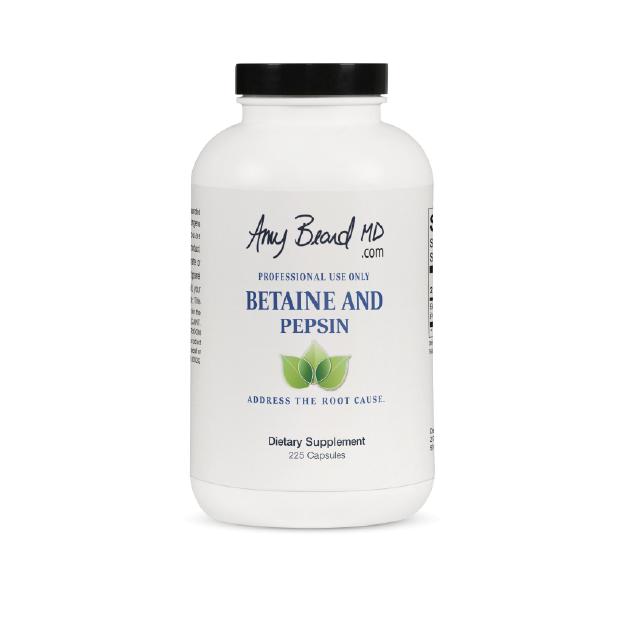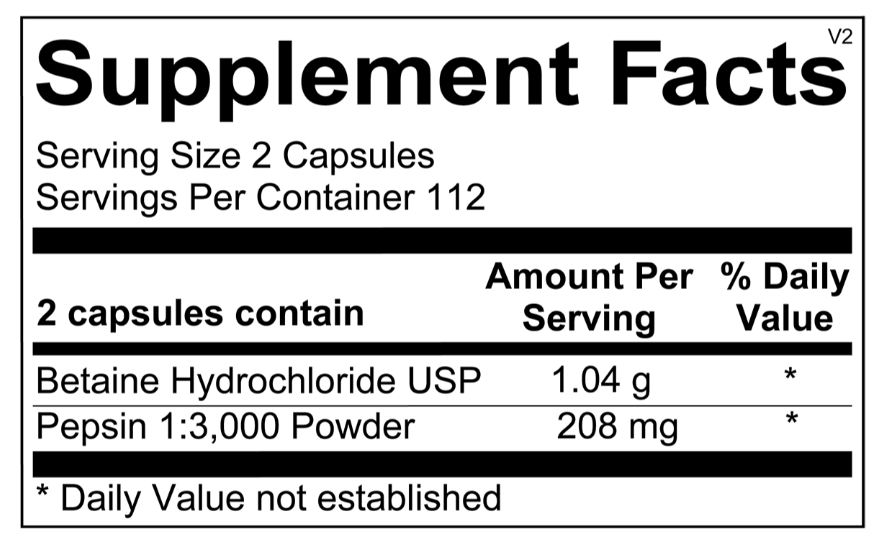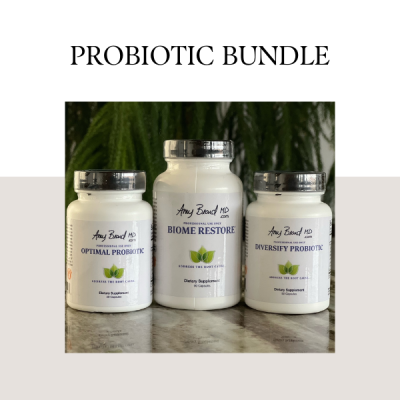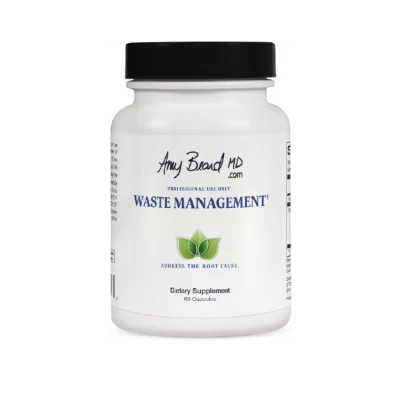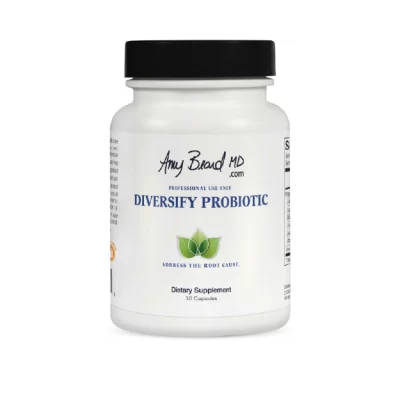Description
Benefits of Betaine and Pepsin
- Provides Hydrochloric Acid to Help Maintain Gastric pH
- Promotes Healthy Digestion, Especially of Dietary Protein
- Supports Overall Nutrient Absorption
Overview
Symptoms of indigestion are often mistaken for excessive gastric acid. This leads many to take acid blockers in attempt to lower stomach acid, when the true culprit is likely to be insufficient levels of hydrochloric acid (HCl). The resulting reduction in stomach acidity can lead to impaired protein digestion and mineral breakdown over time, as well as changes in the gut flora. Maintaining adequate levels of HCl is fundamental to healthy protein digestion, nutrient availability and maintenance of beneficial gastric flora.
Betaine HCl and pepsin are produced by the hormone gastrin. Gastrin signals the gastric glands and parietal cells to produce HCl, and stimulates chief cells to produce pepsin. Once the pH of the stomach reaches around 2.0, the gastrin mechanism slows and the negative feedback causes parietal cells to decrease production of HCl. Since pepsin is most active in low pH values, gastric juices must be acidic for the enzyme to function. Support of natural gastric secretions and acidity with Betaine & Pepsin supports normal digestion, absorption and optimal immune health. In addition, maintaining an acidic pH in the stomach helps support normal gastric and intestinal flora.
Deficiency
An estimated 30% of Americans suffer from low levels of acidity, which can result in the incomplete digestion of foods and displacement of food from the stomach. Studies have shown that HCl production decreases with age. According to one study, 30% of men and women suffer from low acid production. A second found that 40% of post-menopausal women lacked basal acid secretions. Since HCl and healthy digestive enzyme status is essential for access to nutrients from foods, depletion of enzymes and HCl can result in suboptimal nutritional status. Ongoing use of acid- reducing medications can also deplete stomach acid and lead to malabsorption of certain vitamins and minerals.
Betaine
Betaine (also known as trimethylglycine) is a natural substance found in foods such as beets and spinach. Research suggests that betaine supports cell health by acting as a methyl donor, This, in turn, supports healthy methionine, homocysteine and hepatic fat metabolism. Betaine also functions as an osmolyte, which supports the integrity of cells and proteins during fluctuations in hydration, salinity and temperature. Betaine HCl, the acidic form of betaine, has been used for years to support digestion and absorption due to its ability to lower gastric pH.
Pepsin
One of the first enzymes to initiate protein digestion, pepsin is synthesized in the parietal cells of the gastric mucosa and secreted as the inactive precursor, pepsinogen. HCl activates pepsinogen to convert it to pepsin once it is outside the cell. Pepsin is released by the chief cells and is responsible for breaking down proteins into peptides. This activation sets up a chain reaction that produces more pepsin, allowing for better protein digestion.
Directions – 1-2 capsules before each meal, or as recommended by your health care professional.
Does Not Contain – Gluten, corn, yeast, artificial colors and flavors.
Cautions – If you are pregnant or nursing, consult your physician before taking this product.
